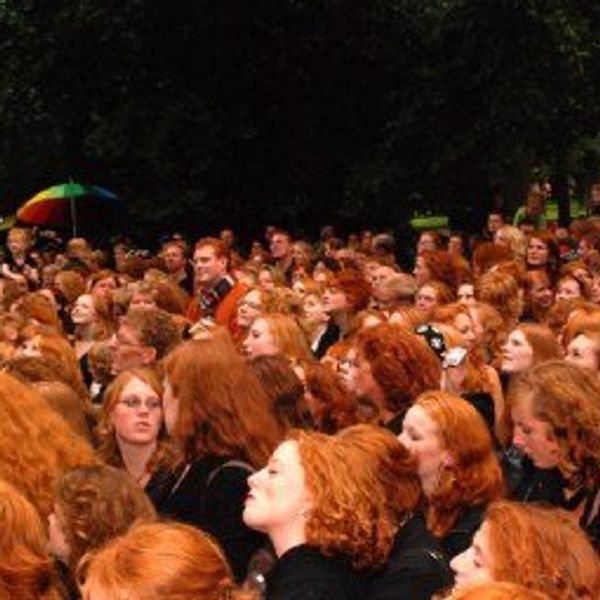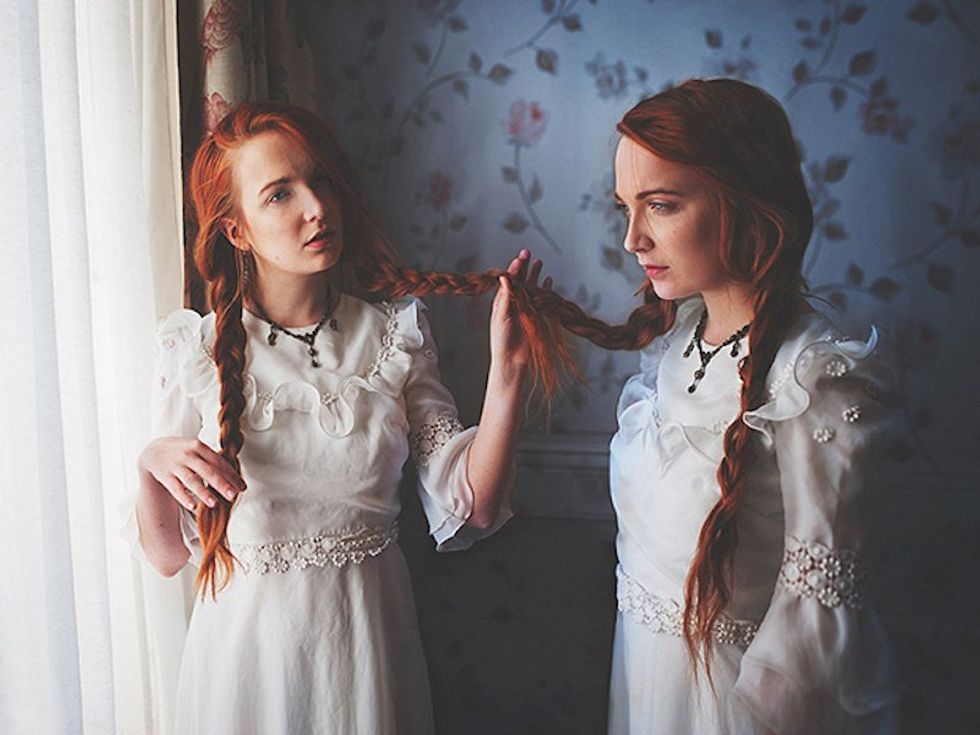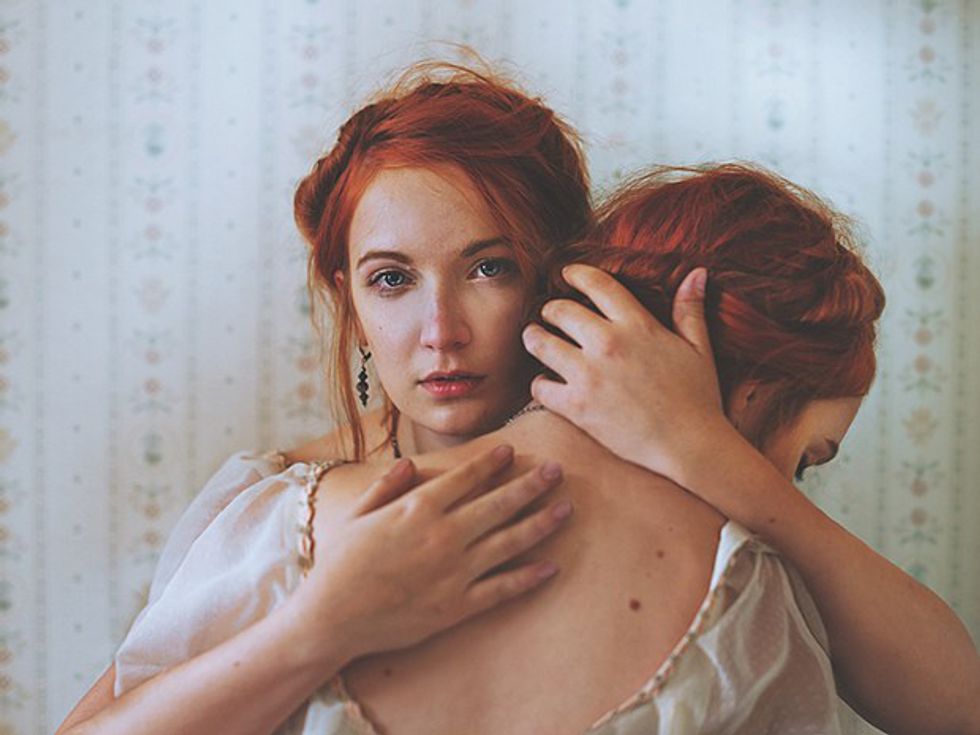Sunburned, yet again. As I return from the river, my body is speckled with patches of deep red and I am reminded, once again, that I am a red head. Getting sunburned is often a reflection of the color of my hair and not my own stupidity (I should have put sunscreen on - multiple times - every twenty minutes, really). Yet here I sit, once again, sunburned, itchy, and ferociously redheaded.
We are not just redheads - we cannot be clumped into one idea of what you think a redhead should look like. We represent a plethora of reddish colors, from auburn to strawberry blonde. We represent a variety of skin tones. We vary in degree of freckles. We range in personality types and have different pain thresholds. We are tall, short, voluptuous, thin, thick, curvy, whole, unique, fierce, firey, and full of soul.
Don't Call Me A Ginger
Have you ever really looked at ginger. Depending on the variety, the outer layer of skin can range from a deep reddish brown to a pale brown. The meat inside ranges from a bright yellow to a pale white. Each root is different (and definitely not very red) - so why does everyone think its ok to generalize and call me a ginger? I don't go around calling you a poo-head because the color of your hair looked like my morning sh*t.
Where did the term come from? Why has this word become part of your vocabulary? Why have you never been asked to sit and think about the way in which you use this word?
The root of the term ginger (referring to a redhead) is generally unknown, but literature began to introduce the term in the late 1700s in London. A Classical Dictionary of the Vulgar Tongue published in 1785 briefly mentioned the slang term for a redhead,
Throughout history, red hair has been demonized. In medieval years, red hair was thought to be a mark of a beastly sexual desire and moral degeneration. Our harmless mutation was thought to be the mark of the devil, vampires, witches, and werewolves. Montague Summers wrote, "those whose hair is red, of a certain peculiar shade, are unmistakably vampires... the victims were red-haired men who were burned, their ashes being scattered far and wide by winnowing-fans." Source: Wikipedia
In British English, the words "ginger" or "ginga" are often used in an insulting way when describing redheaded people, as well as "gingerphobia" and "gingerism". Shows like South Park perpetuate this perverted idea with rude (supposedly "ironic") commentary about "ginger kids". They target redheaded boys, describing them as "being disgusting, inhuman, unable to survive in sunlight, and having no souls".
This is what we have to battle when we grow up - why do we allow people to speak this way to each other? Why are we as redheads forced to grin and bear it when we are called gingers? Why is it socially acceptable to target the color of ones hair, but it is deemed inappropriate to target the color of ones skin or the shape of ones body? I implore you to sit with yourself for a moment and think about how this seemingly innocent word actually has a dark historical past.
The Roots of Red Hair
Red hair is the rarest natural hair color in humans. The non-tanning skin associated with red hair may have been advantageous in far-northern climates where sunlight is scarce. Studies by Bodmer and Cavalli-Sforza (1976) hypothesized that lighter skin pigmentation prevents rickets in colder climates by encouraging higher levels of Vitamin D production and also allows the individual to retain heat better than someone with darker skin.[40] Source: Wikipedia
In the United States, about 25% of the population carries the mutated melanocortin 1 receptor (MC1R) that causes red hair. With one in four people as carriers, the chance of two people having a child with red hair is about 2% (one in 64). That means, the likelihood that you carry this recessive gene is high, very high in fact. If you mate with another brown haired beauty with the recessive gene, you will probably pop out a beautiful mustard yellow haired baby. Yes, we are in you.
I wish someone told me long ago that my red hair was rare - It may have helped when catty girls in elementary school poked fun at me or when boys became attracted to boobs and blond hair, neither of which I had. I spent my most formative years disliking the color of my hair because it made me stand out - It made me unique in a time of my life when all I wanted to do was fit in. It took me many years to come to terms with the fact that even if I dyed my hair, my roots would always be red.
Let's celebrate this beautiful mutation. Let's be empowered by how our red hair glows in the sunlight. Let's join together and rub sunscreen across each others back in solidarity. Let's be understanding, empathetic, and mindful that we all have various characteristics that make us unique, powerful, fierce, and just plain sexy. What can you do? Inform yourself, indulge yourself with beautiful photography, and keep dying your hair red (because you know you want to). Hats off to us, for we are unique, wild, and wonderful - Let your red hair shine (but don't forget to sunscreen your scalp).
























